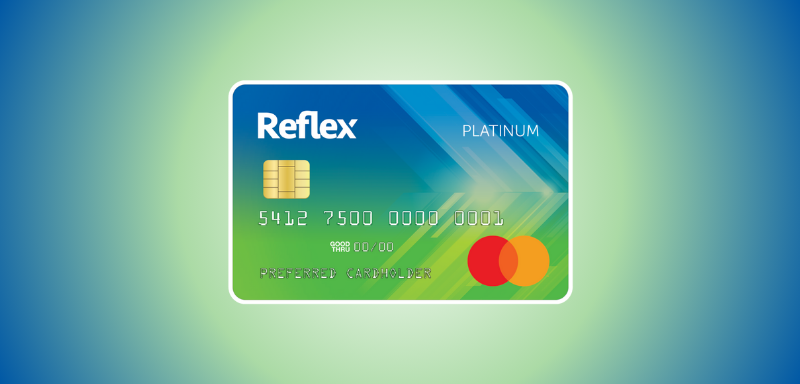Finance
What are the consequences of not using your credit card?
Discover the significance of regular credit card usage and the repercussions of neglecting it.
Advertisement
Discover effective strategies for maintaining your accounts in good standing.

Credit cards play a vital role in financial management and building a secure financial future. However, what are the implications of not using them? In this blog post, we will delve into the risks and potential advantages of abstaining from credit card usage. Continue reading to enhance your understanding.
What happens if you don’t use your credit card?
Neglecting to use your credit card can have negative consequences. Your card issuer may decrease your credit limit or even close your account, which can impact your credit score. Unfortunately, these actions are often taken without prior notice. Consequently, a previously accessible credit line can suddenly become unavailable.
Such decisions by the card issuer can damage your otherwise good credit standing and make it challenging to obtain credit in the future. It is crucial to stay vigilant regarding your card account activity and ensure timely payments. To learn more about these tips, delve further into the details.
You will be redirected to another website
By submitting this form, I agree that I am 18+ years old and I agree to the Privacy Policy and Terms and Conditions. I also provide my signature giving express consent to receive marketing communications via automated emails, SMS or MMS text messages and other forms of communication regarding financial products such as credit card and loans. Message frequency varies and represents our good faith effort to reach you regarding your inquiry. Message and data rates may apply. Text HELP for help or text STOP to cancel. I understand that my consent to receive communications is not a condition of purchase and I may revoke my consent at any time.
1- The credit card supplier may opt to close the account themselves:
Failing to utilize your credit card for an extended period can have significant consequences. One potential outcome is that your credit card company may silently and unexpectedly reduce your credit limit.
It is crucial to comprehend the implications of not using your card. While there is no fixed timeline that triggers immediate concern, an extended period of several months of inactivity could result in the closure of your account.
Ideally, you should receive some form of communication accompanying these changes, providing you with an explanation of the situation and necessary steps to be taken.
To proactively manage your credit accounts, it is advisable to maintain regular activity across your cards and stay updated on any notifications to ensure your accounts remain in good standing.

2- Decreasing the overall credit history duration:
Many individuals fail to recognize the significant impact on their credit history length, particularly when an account has been open for an extended period.
When calculating your credit score, lenders consider the length of your credit history as a crucial factor.
However, having fewer accounts with longer and consistent payment histories can substantially improve your credit score compared to not using your credit card.
Therefore, it is essential to ensure that even if you decide to close an account or take a break from using it, you keep it open and carefully review all its terms. By doing so, you can mitigate any potential shortening of your credit history length caused by this factor.
3- Raises the credit utilization rate:
Maintaining a favorable credit utilization rate is crucial for maintaining a good credit score, as it is the second-most important factor.
Your utilization rate reflects the percentage of available credit that you are currently utilizing.
If an account is closed, you will have less available credit, which can lead to an increased utilization rate.
To prevent a significant drop in your credit score due to high utilization rates, experts advise keeping your credit usage below 30%.
Furthermore, individuals with the highest scores typically maintain a utilization rate of 10%, demonstrating the substantial benefits it brings to your financial well-being.
4- Impacts credit mix:
Maintaining a diverse credit mix with different types of credit accounts is crucial for enhancing your credit score and demonstrating responsible credit management.
However, what are the implications of not using your credit card? Regrettably, it can also have a negative impact on your credit score.
Additionally, if you only have one type of revolving account and it remains inactive, the issuer may choose to close it.
Consequently, this can harm your credit mix and potentially affect lenders’ perception of your creditworthiness when considering your eligibility for obtaining financing.
5- Increases vulnerability to fraud:
By not using your credit card, you may overlook essential fraud alerts and fail to address potential issues promptly.
Neglecting to review your statements can result in missing any fraudulent charges made on your card.
This poses a significant risk since the longer it takes to detect fraudulent activity, the more challenging and time-consuming it becomes to resolve.
Furthermore, if you don’t report fraudulent activity promptly, you may unintentionally assume financial responsibility for the unauthorized charges.
Therefore, it is crucial to stay vigilant and consistently monitor your account activity to ensure prompt action in case of any suspicious transactions.
Should you cancel an unused credit card?

Closing an unused credit card account may be a viable option, but there are important factors to evaluate before making a decision.
First and foremost, consider the incentives offered by the card. Assess the potential rewards, cash-back options, or travel points associated with the card. If there are no attractive incentives remaining, closing the account could be a reasonable choice.
Another crucial aspect to consider is the age of the account. If it is your oldest card account, closing it may have a negative impact on your overall credit score.
While credit cards can be beneficial, they can also lead to financial difficulties. To gain further insights, explore the post below, which reveals seven lesser-known facts about credit cards.
Trending Topics

Premier Bankcard® Card: For bad score
Looking for a credit card to help you build your credit score? Discover the benefits of Premier Bankcard. Take control of your credit!
Keep Reading
Reflex® Platinum Mastercard® Review: Making Credit Access Easier
Apply for the Reflex® Platinum Mastercard® and discover the benefits of effectively rebuilding your credit! Check the full review.
Keep Reading
Are Credit Cards a Good Financial Tool for Me? When Should I Use One?
Are credit cards good for you? This article breaks down how they work, the benefits they offer, and when it’s smart (or not) to use one.
Keep ReadingYou may also like

MoneyKey Personal Loans Review: Unlock fast cash!
Need funds fast? MoneyKey Personal Loans provides flexible, quick, and secure options. Dive into our review to learn more and apply today.
Keep Reading
